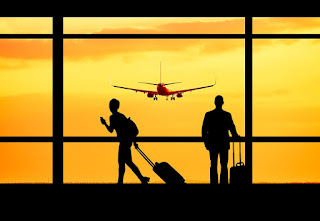COVID-19: Travel Health Considerations
COVID-19, a kind of coronavirus, continues to wreak havoc on international travel.
To combat the spread of COVID-19 and its derivatives, most governments continue to impose border restrictions and entrance procedures for foreign travellers.
To combat the spread of COVID-19, countries can lift or implement travel bans or quarantine measures at any time, which could disrupt scheduled travel.
You must follow the guidelines set forth by the local public health authority in the nation you are visiting.
Before you plan your trip, read all of the information on this page and think about the measures you'll need to take in regard to COVID-19 before, during, and after your trip.
See the Coronavirus (COVID-19) Frequently Asked Questions page for more information.
Before Travel
You should carefully review and follow all of the guidance below if you are planning to travel internationally.
Be aware that guidance is updated regularly and can change between booking or planning your trip, and your departure
1. Review the FCDO's international travel advice.
For each country, the Foreign Commonwealth and Development Office (FCDO) publishes the most up-to-date official travel information on COVID-19 entrance criteria.
You must review the entry criteria portion of the FCDO country page for the nation to which you are travelling.
If COVID-19 levels in the UK are high, several nations may reject admission to travellers from the UK.
If the COVID-19 level of a country is high, the FCDO may advise you to avoid going there.
The FCDO nation page will assist you in determining whether you need to perform any of the following in order to visit that country:
Before you go, show documentation of a negative COVID-19 test.
you will need to employ a private healthcare provider of coronavirus (COVID-19) testing
COVID-19 testing for the purposes of international travel is not available on the NHS\sprovide proof of recent or past COVID-19 infection\s 'fit to fly' or 'COVID-19 clearance' certificates for international travel are not available on the NHS\s further information is available in the FAQs
provide proof of COVID-19 vaccination status (how to prove COVID-19 vaccination status varies depending on where you live in the UK) quarantine on arrival at your destination complete further documentation prior to arrival offer evidence of having valid travel insurance
2. Determine your risk of Coronavirus (COVID-19) exposure at your destination.
The danger of exposure to COVID-19 in the nation will be highlighted in the 'Alerts' section of all fitfortravel country pages, including if it is a high risk.
If there have been significant case increases, outbreaks, and/or emerging or recognised variations of coronavirus (COVID-19) in a country, it will be highlighted in the 'News' section.
Before arranging any journey, check the COVID-19 risk at your destination and think about how it might effect you.
Read more on how to reduce your chances of contracting COVID-19 while travelling.
Remember that if you do not maintain physical distance and hygiene measures during your journey, your chance of exposure will grow.
Be aware that local healthcare services may be overburdened, preventing you from receiving medical treatment at your destination, especially if you are at high risk of acquiring a serious illness.
3: Think about other health conditions.
To minimise your chances of needing medical attention while travelling, make sure you're up to date on any recommended travel vaccines, have antimalarial medicines if needed, and are in excellent health before you depart.
For up-to-date travel health guidelines, guidance on health concerns to be aware of at your destination, and to see if you need to consider vaccinations or antimalarial tablets before you travel, visit the relevant fitfortravel country page.
If you are not feeling well, you should not travel.
If your illness is detected at entrance or exit screening at airports, during your flight, or when crossing borders, even if your symptoms are not related to COVID-19, you will increase your chances of being denied boarding or being quarantined.
4: Double-check that your travel insurance covers your vacation.
It is necessary to get travel insurance. Always verify your coverage for exclusions, as some policies may not cover COVID-19 claims.
If the FCDO advises against visiting a nation but you go nevertheless, your travel insurance may become void.
If you have particular questions about what your travel insurance policy covers, contact your provider.
Check with your travel agent or company ahead of time to see what physical separation and preventative hygiene measures have been put in place, and think about how they will effect you.
Expect delays and prepare for extra travel time.
To comply with physical separation restrictions, be prepared to queue or take alternate routes in and around stations and airports.
If you're flying, consult the GOV.UK Coronavirus (COVID-19): safer air travel guidance for safety actions to take.
Make sure to plan ahead of time for your vacation and include enough of snacks, especially if you're travelling with kids or have a medical condition like diabetes.
It's possible that shops and restaurants in airports and transportation hubs aren't open or have restrictions in place.
Food and beverages may need to be pre-ordered or may not be available for purchase on board an aircraft or other mode of public transportation during your journey.
Review the instructions you'll need to follow when you return to the UK after your trip.
At 4 a.m. on March 18, 2022, the UK Border Force amended the rules for entering the UK from overseas.
If the rules for the UK country you travel in or live in are different, you should always check and respect them.
England/Scotland
Northern Ireland is a part of the United Kingdom of
Wales
UK COVID-19 restrictions
When you return to the United Kingdom, you must follow the most recent COVID-19 requirements for Scotland, England, Northern Ireland, or Wales.
If you have COVID-19-like symptoms, you should consult the most recent guidance for Scotland, England, Wales, or Northern Ireland.


Awesome!!!
ReplyDeleteyeah hmmmm good artical
ReplyDelete